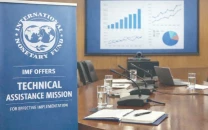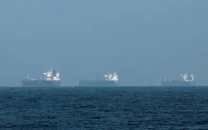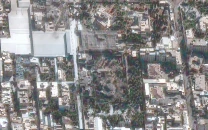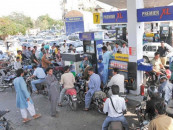Not leading by example
The promised democracy is nowhere to be found.

This is reflective of the disaffection and disappointment of the common man on whose shoulders our rulers have come to power, only to use it for personal benefit. In all areas of national life, Pakistan is in deep mess today. The national slide down appears to be unstoppable and those at the helm of affairs couldn’t seem to care less. Contrary to their claims of commitment to democracy, all what they have done has harmed the cause of democracy. I say this because without its true essence and spirit, democracy has the potential of being worse than dictatorship — especially since it creates an illusion and myth about itself. A ‘pseudo democracy’, on the other hand, works only for the benefit of a few — and usually those that are in power or who have connections to those in power. This in turn has the potential to create disillusionment among ordinary Pakistanis who then lose faith in democracy, political parties and the democratic process.
When the prime minister was elected to his post, many people thought that he would eventually come out of the shadows of his benefactor — the party co-chairman — and become an independent-minded and acting prime minister. In this context, it can be said that as far as loyalty is concerned, he has a satisfactory scorecard so far. But being in the position of the prime minister, of a country as troubled as Pakistan, requires more than just loyalty to one person. The demands of the office that he holds require loyalty to the constitution, the people and the society at large.
I am not sure if the prime minister understands what disservice he has done to the tradition of rule of law, already so weak in Pakistan, by not coming clean and clear on troubling issues of accountability and implementation of decisions of the Supreme Court.
Granted that politically he has been caught up in a dilemma between the demands of his office and the legal troubles of the president, but he could have, at least, avoided speaking different languages to different quarters. Maybe it made political sense for him to waver when, in fact, he should have taken a clear stand on many tangled issues.
In our history, prime ministers under autocratic presidents in adverse circumstances have grown out of shadows and have proved to be their own men by taking independent decisions. Gilani has not been one of those. Since reports of corruption of the present government have been aplenty, one only has to wonder why the senior elected leadership has not done anything to check the graft.
Published in The Express Tribune, November 1st, 2010.















COMMENTS
Comments are moderated and generally will be posted if they are on-topic and not abusive.
For more information, please see our Comments FAQ